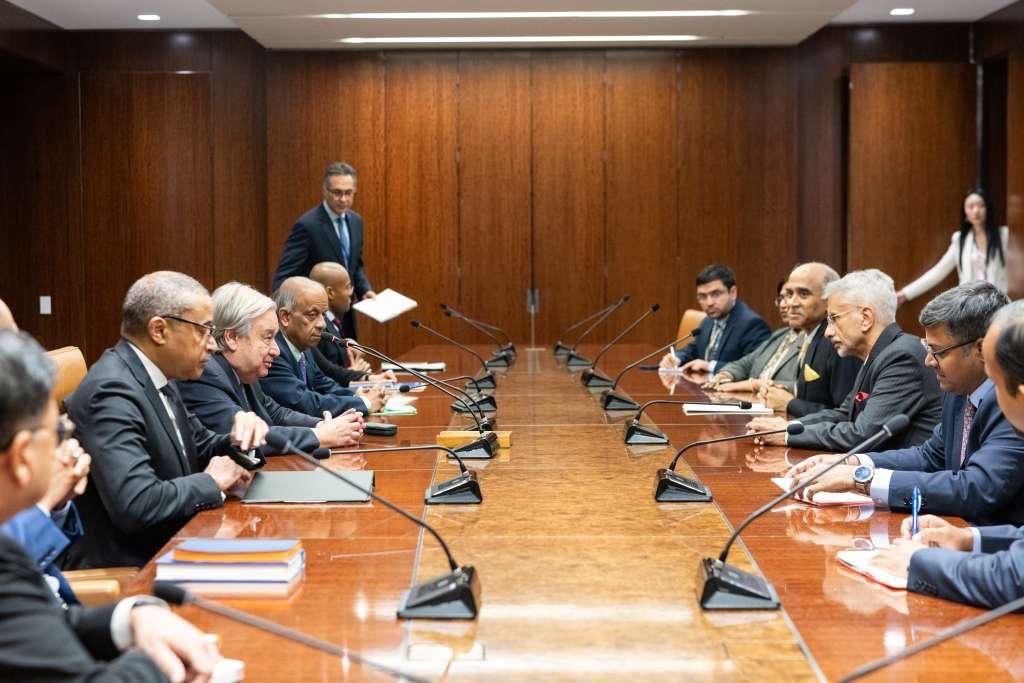External Affairs Minister S. Jaishankar met UN Secretary-General António Guterres in New York for a wide-ranging discussion on the global situation and the state of multilateralism.
Following their meeting at the UN headquarters on Thursday (local time), Jaishankar wrote on X: “Good to meet with UNSG @antonioguterres in New York today. Valued his assessment of the current global order and its implications for multilateralism. Also appreciated his perspectives on various regional hotspots.”
Jaishankar thanked Guterres for his “clear and consistent support” for India’s growth and development, adding that he looked forward to hosting the UN chief in India.
Earlier this week, UN Deputy Spokesperson Farhan Haq had conveyed Guterres’s condolences to India over the November 10 car bomb blast near the Red Fort, saying the incident must be fully investigated.
Jaishankar’s stop in New York came shortly after his visit to Canada, where he attended the G7 foreign ministers’ meeting and held talks with counterparts from several countries.
Canada, which currently holds the G7 presidency, had invited India as a partner country for the meeting.
On the sidelines, Jaishankar met Canadian Foreign Minister Anita Anand and reviewed progress under the ‘New Roadmap 2025’ that guides bilateral ties.
He also held extensive discussions with several leaders attending the summit.
US Secretary of State Marco Rubio spoke with him about trade, supply chains, and major global flashpoints, including the conflicts in Ukraine and the Middle East, as well as developments in the Indo-Pacific.
Ukraine’s Foreign Minister Andrii Sybiha said he briefed Jaishankar on Kyiv’s views on achieving peace, the battlefield situation, and Russian strikes targeting critical power infrastructure supporting nuclear plants.
Jaishankar also met EU High Representative Kaja Kallas, France’s Jean-Noël Barrot, Germany’s Johann Wadephul, UK Foreign Secretary Yvette Cooper, and senior ministers from Saudi Arabia, Brazil, Mexico and South Africa, discussing bilateral cooperation and broader international issues.
–IANS














